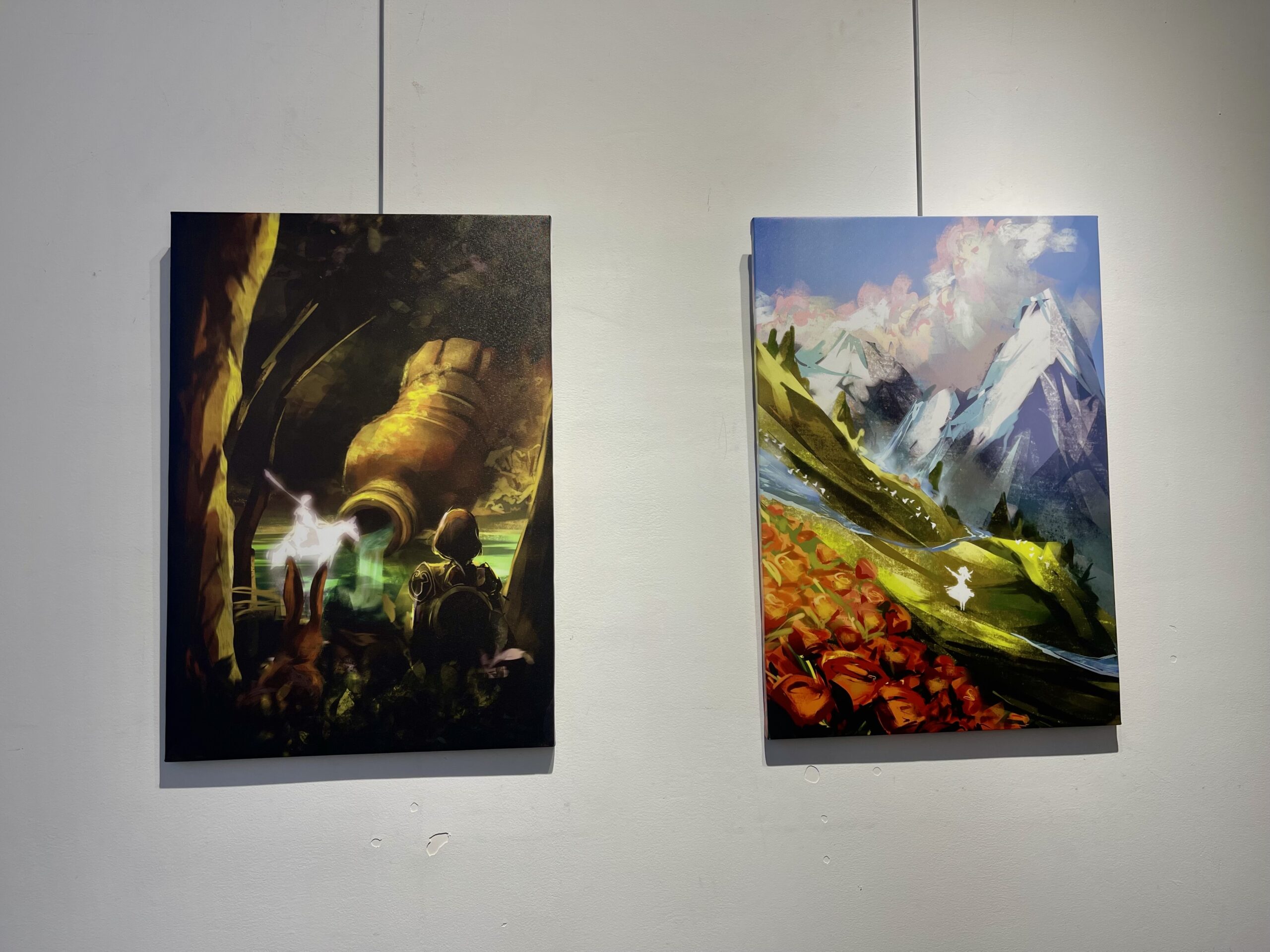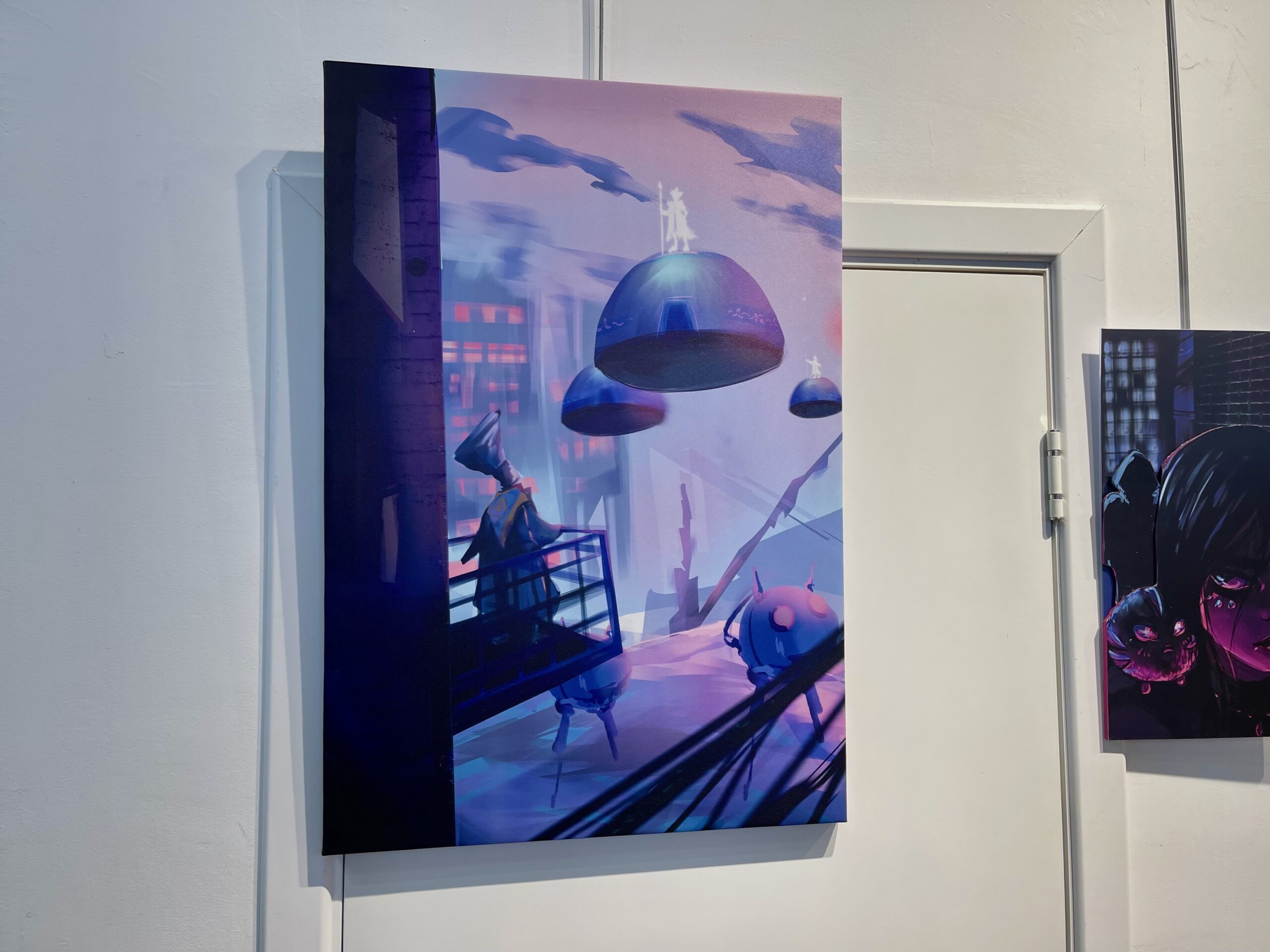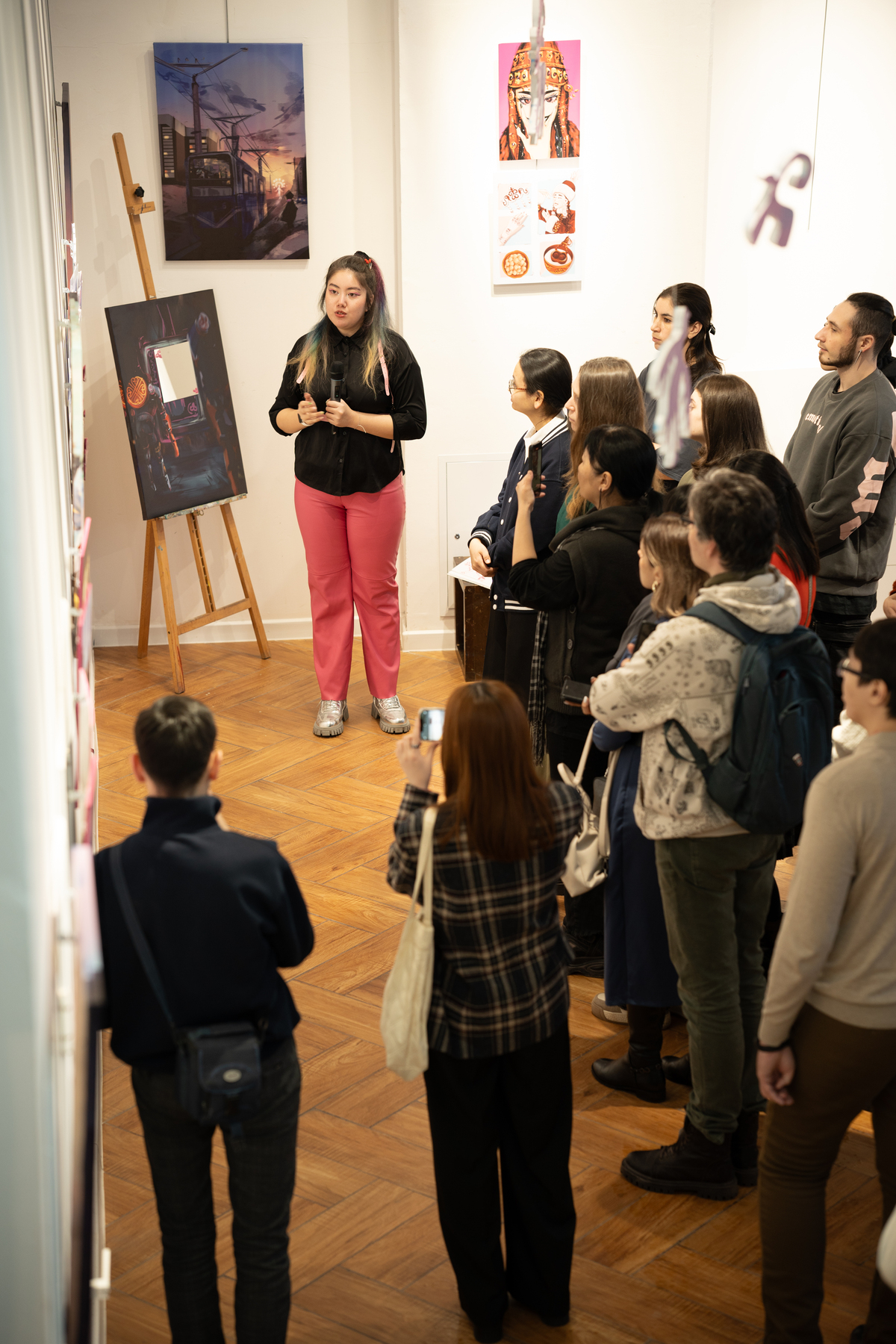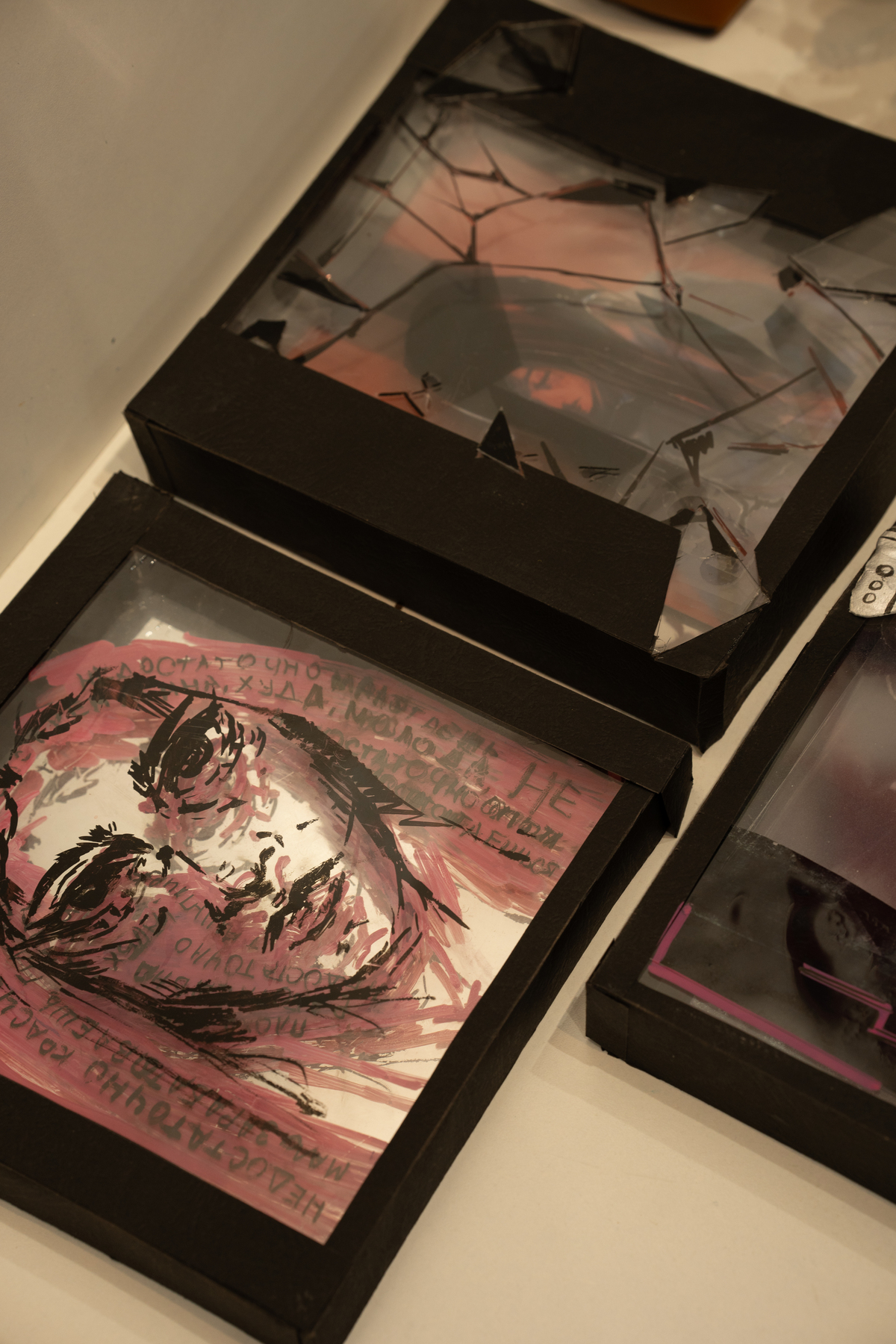ASTANA — Art is becoming increasingly reflective and socially significant in the modern world. Each artwork by an artist begins to reflect on current social issues, evoking delight and contemplation in the viewer at the same time. One example of such art is the debut exhibition [not] Enough by Malika Igibayeva at the Sal Seri gallery in Astana on March 13.

Malika Igibayeva. Photo credit: Sal Seri gallery.
In an interview with The Astana Times, Malika Igibayeva, a digital artist and member of the Union of Young Artists of Kazakhstan, offers profound insights into her debut exhibition, [not] Enough.
“The exhibition is titled [not] Enough, capturing a state that perhaps everyone experiences at some point in their lives. Even as I prepared for this exhibition, I found myself in such a state. The essence is to showcase that this is a normal human condition and there will never be ‘enough.’ It extends beyond internal experiences to encompass the entire world and global social issues. For instance, we might feel there’s not enough security, not enough freedom or that we’re not paying enough attention to ecology,” said Igibayeva.

The series of works “Aruaktar.” Photo credit: The Astana Times/Aruzhan Ualikhanova.
Malika Igibayeva’s creative journey in digital art began in 2017. All the works featured at the exhibition are digital but not only. The artist demonstrates a variety of techniques and materials she works with. From volumetric compositions to multi-layered canvases – each work carries a piece of the artist’s thoughts and emotions. Her works are not only a reflection of her own thoughts and feelings but also an invitation to dialogue and reflection.
“I wanted to talk more about how we feel inside. All the paintings have the same title ‘Not enough.’ It makes you think, ‘What’s missing?’ So, everyone can see the paintings their way, based on their own thoughts,” shared Igibayeva.

Photo credit: Sal Seri gallery.
The main feature of this exhibition is that it is constantly in a state of ‘insufficiency’ and will evolve throughout its duration. It means that it will transition into a state of ‘sufficiency,’ which will also eventually become insufficient. The storyline and certain elements will be updated and refreshed periodically. The exhibition will run till April 11.
The series of works “Aruaktar” (spirits of ancestors) deserves special attention. These are not just images of ancestors in a modern setting but an attempt to show that our history and roots are not only about the past but also the future we create ourselves. However, the viewer might interpret the appearance of aruaktar in future settings as a warning or a sign.

The series of works “Aruaktar.” Photo credit: The Astana Times/Aruzhan Ualikhanova.
“For me, an exhibition is not just an indicator of my level. It’s an opportunity to sum up and understand what’s next. I wanted to keep expanding and exploring my creativity, as well as trying out new techniques. For this exhibition, I aimed for all the pieces to be intricate, multi-layered and multi-dimensional, but I was learning as I went. Many of the pieces were my first attempts and I was learning to overcome challenges along the way,” said the artist.

Malika Igibayeva at the opening of [not] Enough exhibition. Photo credit: Sal Seri gallery.
“I have two passion projects – Meet&Sketch and SHU, and I’m also involved in game design, specifically in game development. With Meet&Sketch, I often engage with young artists from Astana. When I say ‘young,’ I don’t necessarily mean by age but rather those who are just starting in their artistic journey. It’s a community where artists come together to chat, meet and draw, while also supporting each other.”

Photo credit: Sal Seri gallery.
Her second project, SHU, focuses on democratizing art. The goal is to demonstrate that creativity is accessible to everyone.
“Even someone who has never attended art exhibitions or pursued formal art education has the opportunity to engage because art is fundamentally about emotions and feelings. There’s no need to fear not understanding art; one simply needs to look and appreciate,” said the artist.
According to Malika Igibayeva, this is the first exhibition focused on digital art in Astana.
“Nowadays, at art exhibitions besides oil paintings, you can see photographs, but digital art itself is rarely exhibited separately. Through my work, I wanted to show that digital artists can also showcase their creations in galleries.”
Malika Igibayeva’s exhibition is not only a step in her creative development but also an important step for digital art as a whole. It shows that digital artists are not just creators for the internet but also serious artists deserving recognition and a place in galleries.

